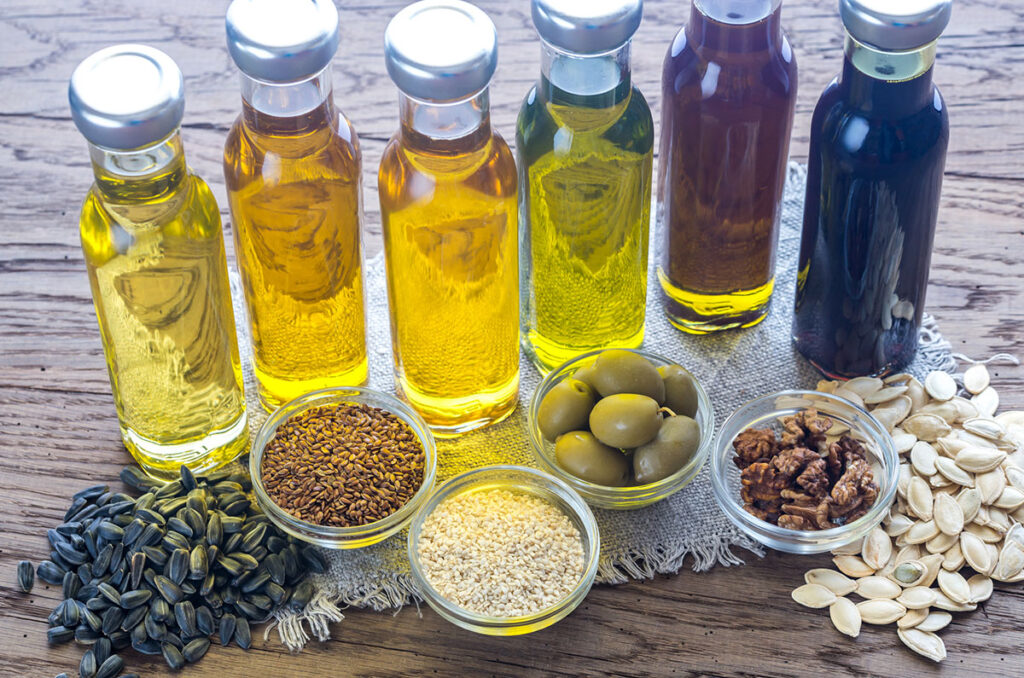
Sourced from Seeds
Seeds are tiny but mighty nutritional powerhouses packed with essential nutrients, healthy fats, proteins, and fibers. Consuming seeds can provide numerous health benefits, and they are versatile ingredients that can be easily incorporated into various dishes.
Types of Seeds
- sunflower oil
- Sesame oil
- Canola oil
- Soybean oil
- Cottonseed oil
- Pumpkin seed oil
- Chia seed oil
- Black cumin seed oil

Health Benefits of Seeds
- Chia Seeds
- Omega-3s: Reduce inflammation and support heart health.
- Fiber: Aids digestion and stabilizes blood sugar.
- Antioxidants: Protect against cell damage.
- Flaxseeds
- Omega-3s: Promote heart health.
- Lignans: Provide antioxidant benefits.
- Fiber: Supports digestion.
- Pumpkin Seeds
- Magnesium: Supports heart and bone health.
- Zinc: Boosts immune function.
- Protein: Promotes satiety.
- Sunflower Seeds
- Vitamin E: Acts as an antioxidant.
- Selenium: Enhances immune health.
- Healthy Fats: Reduce inflammation.
- Sesame Seeds
- Calcium: Supports bone health.
- Iron: Prevents anemia.
- Phytosterols: Reduce cholesterol.
- Hemp Seeds
- Complete Protein: Supports muscle health.
- Omega-3s and 6s: Promote heart health.
- Fiber: Aids digestion.
General Benefits
- Heart Health: Healthy fats reduce bad cholesterol.
- Digestive Health: Fiber promotes regularity.
- Weight Management: Nutrient-dense and filling.
- Anti-Inflammatory: Reduces chronic inflammation.
- Bone Health: Rich in calcium and magnesium.
- Skin and Hair: Supports hydration and growth.
- Immune Support: Packed with essential vitamins and minerals.
Conclusion
Seeds are nutrient-dense foods that offer a wide range of health benefits and can be easily incorporated into various dishes. Whether you choose chia, flax, pumpkin, sunflower, sesame, or hemp seeds, you’ll be adding valuable nutrients to your diet. Enjoy these versatile ingredients to boost your health and enhance your meals.
